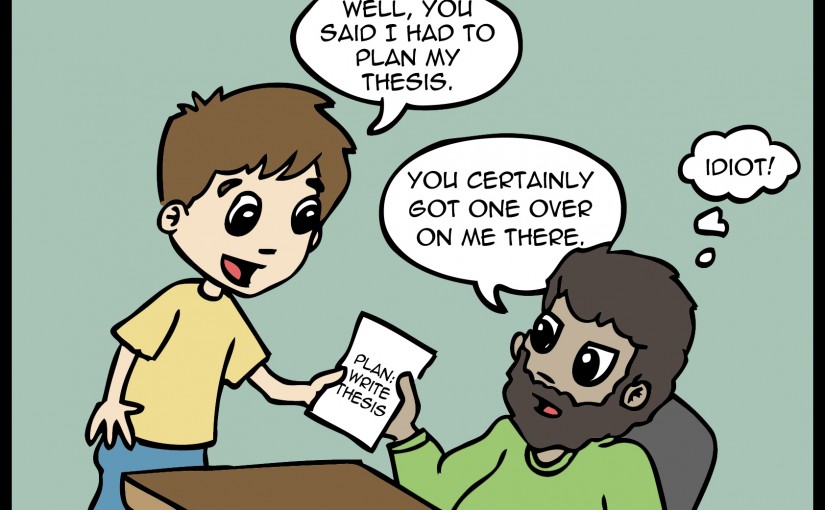The earlier you start your thesis the more time you will have to correct any mistakes. Everyone makes mistakes and generally the main difference between a good and bad piece of work is how many times it has been checked through.
There is nothing more intimidating than the blank page, and the closer you are to your deadline the more intimidating it is. Starting to write as early as you can will reduce stress later on. Even if you haven’t got all your data, or you don’t know the main story of your project, there is always something you can do.
Secondly, it is highly important to plan your thesis thoroughly. The amount of planning should always be proportionate to the size of the project. A 1000 word essay needs a five minute plan. A thesis, which will take months to write, should be planned for considerably longer.
It is a mistake to start writing your introduction with little idea of where it will lead. It’s easy to find yourself on tangents talking about irrelevant information if you have not planned exactly what needs to be written.
Get Practical Tips- The earlier you start writing, the less you will know about your project. If you don’t know your story (see Structure your Project), then doing the general introduction might be a mistake. Writing about specific sections that you already have results for is more worthwhile. Often you can cut and paste these straight into your introduction later.
- Many people start with their materials and methods section as it is the easiest, and likely to remain relevant to your final draft. However, everyone is different, so do what works best for you.
- Make sure you know the stats and graphics software in advance of writing. It is stress you don’t need if you have to learn how to make your graphs at the same time as doing your thesis. Most theses do not contain Excel graphs.
- Use your results to plan your introduction and you will ensure your introduction is relevant. Think about why you followed those procedures and what previous research paved the way.
- Also plan how much information is required for each section so you allow enough time for research. Assess the relevancy of the details you mean to include.
- Make your plan as detailed as possible, including sub headings and sub-sub headings.
- Check your plan with your supervisor before you start writing. Or if that is not possible, at least have someone look over your plan before you start writing. Other people can be a lot more objective about your work.
- A late start does not mean you don’t have time to plan. If anything it is even more crucial, and will save you time as you progress.
Read Personal Perspective
I am not a planner. I hate planning, and for much of my life I’ve got by without it. The result of this attitude when it came to my thesis was vast sections of irrelevance. I’d talked about the things I found most interesting rather than the ones necessary for my project. I read widely in areas of less relevance, and as the deadline approached I rushed others. A tight, to the point thesis requires planning.
